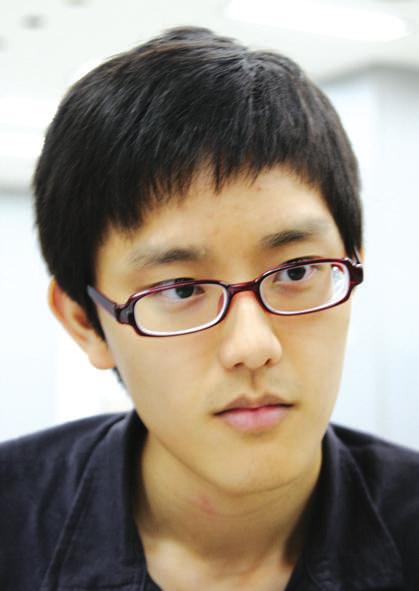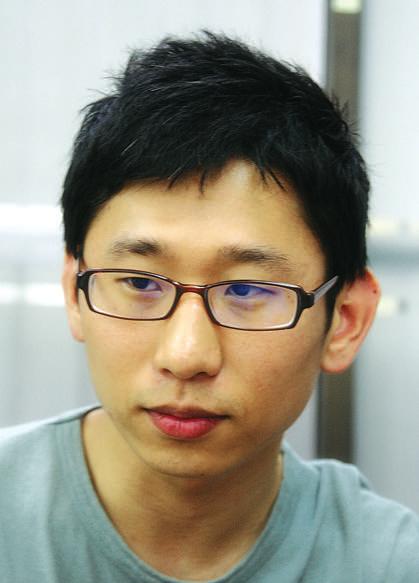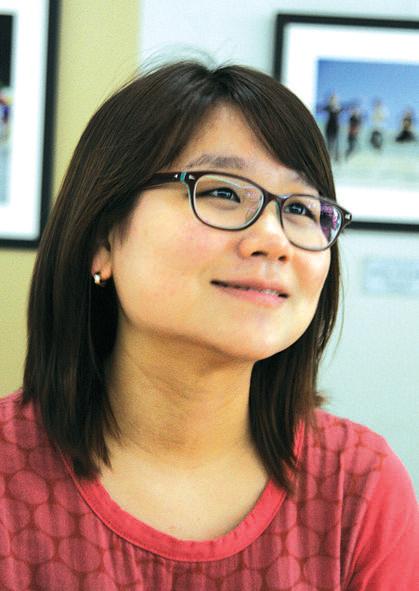The latest buzzword reflecting our society
RECENTLY, A new Korean term has spread rapidly, especially among the young generation. The word Ing-yeo is being widely used to indicate a person who does nothing much, idling away a lot of free time. In the dictionary, it is originally defined as "something that remains above what is used or needed." When the word literally refers to a person, it possesses a slightly negative connotation, implying uselessness. Still, it has crept into our everyday vocabulary, well describing and representing the feelings of many people in society. Taking a closer look, The Yonsei Annals asked students how they view the word Ing-yeo.
Lee Kyeo-rae (Jr., Dept. of Law)
I think Ing-yeo is a word that subtly connotes a standard, evaluating a person by their economic performance in society. As economic productivity and effectiveness has become the number one priority in our capitalistic society, people are required to spend time on producing something useful, constructive, or significant. Otherwise, those who do not are criticized for having no productivity. But I don't think it is right for Ing-yeos to be criticized for not coming up to the standards of society. Those values cannot be an absolute standard, especially when it comes to judging a person. Furthermore, a moment living as an Ing-yeo, even be it a moment doing nothing in particular, is not always a waste of time. Doing nothing could sometimes leadto something. By giving someone a chance to relax and think, it could turn out to be a meaningful moment in life to that person.
 Chung Tae-young (Sr., Dept. of Mech. Engin.)
Chung Tae-young (Sr., Dept. of Mech. Engin.)
The term Ing-yeo, frequently used among the youth on the Internet, reflects the characteristicof today's young generation: being comfortable with self-expression. They are not afraid, or do not care much how others will think of them when they identify themselves as Ing-yeos. In addition, the word Ing-yeo could be widely used because it no longer seems to entail a negative meaning like "useless" or "leftover." Rather, these days, when there are so many workaholics not able to have any free time, some people even want to spend time as an Ing-yeo. I also wished to become an Ing-yeo with a lot of free time when I was busy during the semester with many lecture assignments and part-time jobs. Besides, I think the word Ing-yeo sounds cute and friendly, which is why it can be openly used.
Kang Seung-hyun (Fres h., Dept. of Mass Communication)
h., Dept. of Mass Communication)
I think the word Ing-yeo stems from the characteristics of modern people. They are obsessive, feeling obliged to run their lives under a 24-hour tight plan. Trappe in this obsession, most people, at least once, are bound to feel like Ing-yeos. Even those who seem to lead a busy, hardworking life feel frustrated that they have become Ing-yeos when they get a rare bit of free time. What is more, a lot of people seem to be leading a busy but aimless life. This is caused by pursuing high-paying jobs and a good reputation rather than setting a goal that they are truly passionate about. Therefore, even though they seem to be working hard, they end up feeling somehow empty, like an Ing-yeo, unable to figure out what they are striving for. Moreover, what is interesting about the word Ing-yeo is that it is more often used to describe oneself than to characterize others. Although it is not used in a serious tone most of the time, it sometimes seems sad because the word itself still entails a bitter sense of pessimism.
Jang Do-jung (Jr., Dept. of Econ.) 
The word Ing-yeo does not merely seem to be a casual or fun word, but a word that reflects the harsh society we live in. Ing-yeo shows the social circumstances in which the young are losing ground, faced with high unemployment in the competitive job market. As a student preparing for the state examination, I often feel myself as an Ing-yeo, and this might be a concern of many other examinees as well. Until we pass the exam, we cannot expect any tangible rewards proportional to the amount of effort put in. So when I see other friends building up specs*, paving their way step by step, I feel like an Ing-yeo left behind. That is, as there are many students working on specs for employment, others who don't do so consider themselves as Ingyeos in relative terms. Furthermore, I don't think the word Ing-yeo only refers to people who have a lot of time because of having no purpose in life. It rather indicates people who do have certain goals, but have experienced a sense of failure when these did not work out. It is an expression of self-deprecation.
 Lee Jee-soo (Fresh., Dept. of Education)
Lee Jee-soo (Fresh., Dept. of Education)
In the past, when the word Ing-yeo was used against a person, it was taken in a very offensive way. It literally meant that the person was of no use in society. However, as the word came into common use, it is rather considered friendly now. In this kind of change, I think the Internet has played a critical role. In cyberspace, where anonymity is guaranteed, the users have no reason to hide that they have nothing much to do other than surfing on-line all day. Therefore, many people self-proclaim themselves as Ing-yeos, while sharing similar kinds of concerns and killing time together on-line. In this way, the word quickly came into wide use on the Internet, and this has now spread to the real world, where it became comfortable to call yourself an Ing-yeo. Appealing to many people and reflecting the youth culture of today, this concept of Ing-yeo can even be found in the lyrics of popular Korean indie songs. Now, as there are so many Ing-yeos, I think they no longer feel left out as social outcasts. They now find some kind of comfort and relief from each other, knowing that they are not the only ones idling their days away.
*specs: Derived from the word specification, it was originally used for describing the performance of
electronic devices. Today, it is used to refer to an aggregated sum of job-related certificates, scores, etc.

